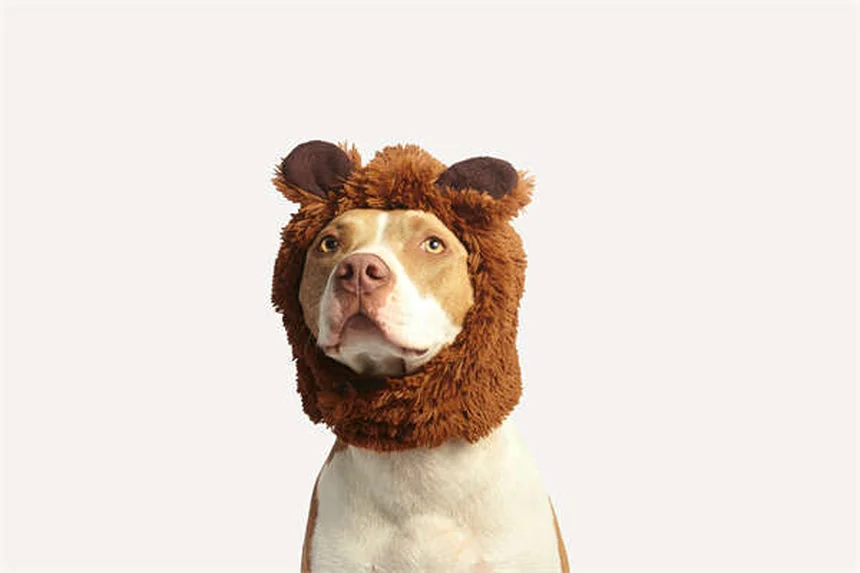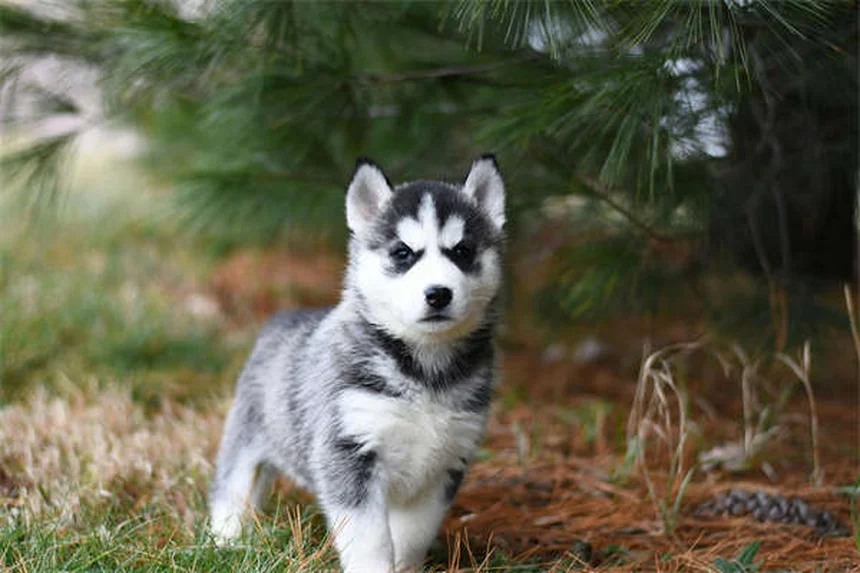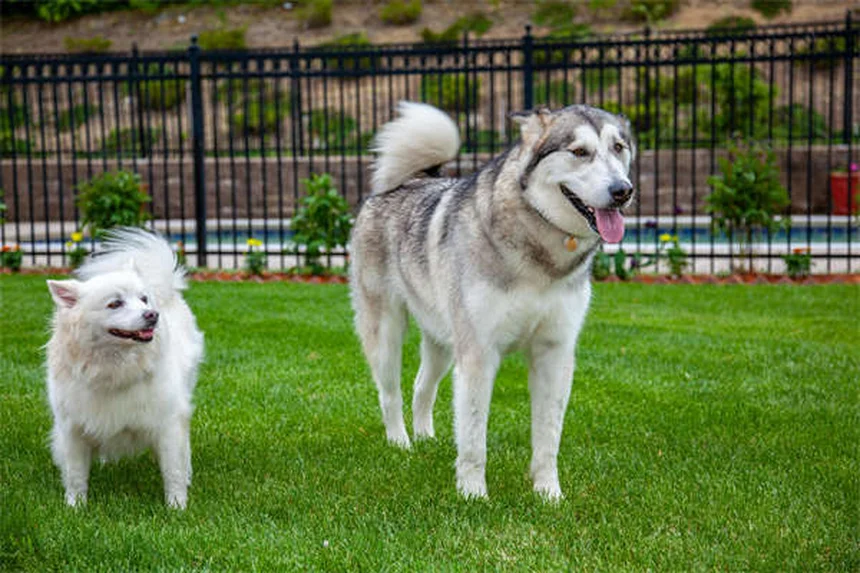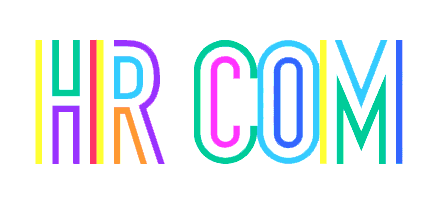Advertisement
Why is my dog licking excessively? The answer is: Your dog's constant licking could signal anything from allergies to anxiety! As a vet tech with 10 years experience, I've seen countless pups struggle with this issue. The good news? Most causes are treatable once you identify the root problem. Whether it's itchy paws from seasonal allergies or stress-related grooming, we'll break down the top reasons your furry friend can't stop licking themselves - and exactly what you can do about it.
E.g. :12 Reasons Why Your Dog Is Peeing in the House (And How to Stop It)
- 1、Understanding Your Dog's Excessive Licking
- 2、Medical Reasons Behind the Licking
- 3、Pain and Discomfort: The Silent Lickers
- 4、Behavioral Factors Behind the Licking
- 5、Treatment Options That Actually Work
- 6、When to See the Vet
- 7、The Hidden Language of Dog Licking
- 8、The Science Behind the Slobber
- 9、Cultural Perspectives on Dog Licking
- 10、Training Alternatives to Excessive Licking
- 11、The Future of Licking Research
- 12、FAQs
Understanding Your Dog's Excessive Licking
When Does Licking Become a Problem?
You know your dog loves to lick - it's how they explore the world! But when does normal grooming turn into something concerning? Excessive licking happens when your pup can't seem to stop, leading to visible problems like hair loss, red skin, or even wounds.
Here's a quick way to tell if your dog's licking has crossed the line: if they're interrupting playtime to lick, waking up at night to groom, or showing signs of discomfort while doing it, there's likely an issue. I've seen dogs lick so much they create bald spots the size of tennis balls! The key is noticing when this natural behavior starts affecting their quality of life.
Common Trouble Spots
Dogs tend to focus their licking on specific areas:
- Between their toes (like they're giving themselves a pedicure)
- Along their forearms (as if polishing their arms)
- Over joints (especially elbows and knees)
- Their belly (the classic "tummy troubles" spot)
Ever noticed your dog suddenly stopping mid-play to intensely lick one spot? That's a red flag. The areas they focus on can actually give us big clues about what's bothering them. For example, constant paw licking often points to allergies, while joint licking might suggest arthritis pain.
Medical Reasons Behind the Licking
 Photos provided by pixabay
Photos provided by pixabay
Allergies: The Itchy Offenders
Allergies are like the uninvited guests at your dog's comfort party - they show up and ruin everything! There are three main types that can drive your pup crazy with itching:
| Allergy Type | Common Triggers | Typical Symptoms |
|---|---|---|
| Environmental | Pollen, dust, mold | Paw licking, face rubbing, ear infections |
| Food | Beef, chicken, dairy | Butt scooting, ear infections, digestive issues |
| Flea | Flea saliva | Intense tail/base itching, hot spots |
Did you know that food allergies account for only about 10% of all canine allergies? That's right - despite what many pet food commercials suggest, environmental allergies are far more common. My neighbor's Golden Retriever, Max, was licking his paws raw until we discovered he was allergic to the grass in their backyard!
Infections: The Unseen Annoyances
Yeast and bacterial infections are like tiny party crashers setting up camp in your dog's skin folds. These microscopic troublemakers love warm, moist areas - think armpits, groin, and between toes.
Here's a fun fact: that "corn chip" smell from your dog's paws? That's actually yeast having a field day! While a mild yeast presence is normal, overgrowth can cause serious itching. Bacterial infections often show up as red, angry-looking skin with pus or unusual discharge.
Pain and Discomfort: The Silent Lickers
When Licking Means "Ouch"
Dogs are masters at hiding pain, but their licking habits often give them away. If your pup is constantly grooming a specific joint, they might be trying to soothe arthritis discomfort. I've seen older dogs lick their hips so much they wear the fur right off!
Other pain-related licking can come from:
- Dental issues (licking lips excessively)
- Anal gland problems (butt scooting and licking)
- Urinary tract infections (genital area licking)
Remember that time you had a paper cut and couldn't stop touching it? That's similar to what dogs experience with painful areas - they just can't leave them alone!
 Photos provided by pixabay
Photos provided by pixabay
Allergies: The Itchy Offenders
Ever seen your dog licking the air or carpet like it's the most interesting flavor in the world? This weird behavior often signals nausea. It's their version of us saying "I don't feel so good..."
Other nausea signs to watch for:
- Excessive lip smacking
- Eating grass (the canine equivalent of drinking ginger ale)
- Drooling more than usual
Behavioral Factors Behind the Licking
Boredom: The Mind Needs Work Too!
Dogs aren't meant to be couch potatoes - they need mental stimulation as much as physical exercise. A bored dog might start licking simply because they've got nothing better to do!
Here's a question: Does your dog lick more when you're busy or not paying attention to them? If yes, they might be telling you they need more engagement. Try these boredom busters:
- Food puzzle toys (like a Kong stuffed with peanut butter)
- New chew toys rotated regularly
- Training sessions (even 5 minutes helps)
Anxiety: When Stress Takes Over
Just like humans bite their nails when nervous, dogs lick compulsively when anxious. Common triggers include:
- Separation anxiety (when you leave the house)
- Loud noises (thunderstorms, fireworks)
- Changes in routine (moving, new family members)
I once worked with a rescue dog who licked his paws bald every Fourth of July. We solved it with a Thundershirt (like a comforting hug) and calming supplements - now he barely notices the fireworks!
Treatment Options That Actually Work
 Photos provided by pixabay
Photos provided by pixabay
Allergies: The Itchy Offenders
Depending on the cause, your vet might recommend:
- Allergy medications (like Apoquel or Cytopoint)
- Antibiotics for infections
- Pain management for arthritis
- Special diets for food allergies
Remember that time my friend tried 15 different foods before finding one her allergic dog could tolerate? It took patience, but now that pup's coat looks amazing and the licking has stopped completely!
Behavioral Modifications
For stress or boredom-related licking, try:
- Increased exercise (a tired dog is a happy dog)
- Calming supplements (like Zylkène or Composure)
- Environmental enrichment (new toys, training games)
Here's a pro tip: teach your dog the "leave it" command. It works wonders for interrupting obsessive licking sessions. Start with treats, then apply it to their licking behavior - just be patient, Rome wasn't built in a day!
When to See the Vet
Red Flags You Shouldn't Ignore
While some licking is normal, certain signs mean it's time for professional help:
- Open sores or bleeding
- Hair loss creating bald patches
- Changes in eating or drinking habits
- Limping or mobility issues
Did you know that excessive licking can sometimes indicate serious conditions like Cushing's disease or neurological issues? That's why it's always better to be safe than sorry - when in doubt, check it out with your vet!
Prevention Is Key
The best treatment is often prevention. Keep your dog's:
- Skin and coat healthy with regular grooming
- Mind engaged with daily activities
- Environment clean and allergen-free when possible
Remember, your dog isn't licking to annoy you - they're trying to tell you something's wrong. With patience and the right approach, you can help them kick the habit and get back to being their happy, healthy selves!
The Hidden Language of Dog Licking
More Than Just Grooming
You might think your dog's licking is just about staying clean, but it's actually their version of sending text messages! Dogs use licking to communicate everything from affection to submission. Ever noticed how puppies lick their mom's face to ask for food? That instinct sticks with them into adulthood.
Here's something fascinating - when your dog licks your face, they're not just giving kisses. They're actually checking your mood through the tiny amounts of sweat and pheromones on your skin. It's like they've got built-in mood detection technology! My Labrador, Buddy, always licks my hands extra when I've had a stressful day at work.
The Taste of Emotion
Why do dogs seem to lick more when we're emotional? It turns out our sweat changes composition when we're stressed or crying. Dogs can taste these chemical differences, which explains why they often lick teary faces. They're not just comforting us - they're literally tasting our emotions!
Think about the last time you cried - did your dog come running to lick your face? That's their way of saying "I'm here for you" in dog language. Scientists believe this behavior stems from wolves licking pack members' faces to show care and strengthen social bonds.
The Science Behind the Slobber
Healing Properties of Dog Saliva
Ever heard the old wives' tale that dog saliva heals wounds? While you shouldn't let your dog lick open cuts (hello, bacteria!), there's actually some science behind this idea. Dog saliva contains proteins called histatins that have mild antibacterial properties.
| Component | Function | Interesting Fact |
|---|---|---|
| Lysozyme | Breaks down bacteria cell walls | Also found in human tears |
| Opiorphin | Natural painkiller | 6x stronger than morphine! |
| Growth factors | Helps tissue repair | Used in some wound treatments |
But here's the catch - while these components sound impressive, your dog's mouth still contains plenty of bacteria you don't want in wounds. That's why vets recommend using proper antiseptics instead of relying on puppy kisses for healing!
The Lick Reflex
Did you know dogs have a special "lick reflex" similar to our knee-jerk reaction? When certain nerves in their face get stimulated, it triggers automatic licking motions. This explains why some dogs will lick the air when you scratch just the right spot!
Here's a funny experiment to try: gently touch the corner of your dog's mouth. Many dogs will automatically start licking even if there's nothing there to lick. It's like their version of when the doctor taps your knee and your leg kicks out. This reflex helps puppies find their mom's milk and stays with them throughout life.
Cultural Perspectives on Dog Licking
Global Views on Canine Kisses
How do different cultures view dog licking? You might be surprised! In Western countries, we generally accept dog kisses as signs of affection. But in many Asian cultures, letting a dog lick your face is considered unhygienic.
In some Middle Eastern countries, dogs are seen as unclean animals, and their saliva is avoided completely. Meanwhile, the ancient Egyptians believed dog saliva had healing powers and would sometimes use it in medicinal preparations. Talk about cultural differences!
The Hygiene Debate
Is letting your dog lick your face actually safe? The answer isn't black and white. While a healthy dog's mouth contains bacteria that's generally harmless to humans, there are some risks to consider.
Ever heard of Capnocytophaga? It's a bacteria commonly found in dog saliva that can cause serious infections in people with weakened immune systems. That's why doctors recommend washing your hands after playing with dogs and avoiding face licks if you're immunocompromised. But for most healthy people, the occasional slobbery kiss probably won't hurt!
Training Alternatives to Excessive Licking
Positive Distraction Techniques
What's better than telling your dog "no" to licking? Teaching them what to do instead! Positive reinforcement training can work wonders for redirecting obsessive licking behaviors.
Try keeping a favorite toy handy when you notice your dog starting to lick excessively. Toss it gently to interrupt the behavior and reward them for playing instead. Over time, they'll learn that toys bring more fun than constant licking. My friend's Beagle went from licking the couch nonstop to fetching toys on command - all through positive reinforcement!
The Power of Chew Toys
Why do chew toys help with excessive licking? They satisfy the same oral fixation in a healthier way. Just like humans might chew gum to relieve stress, dogs need appropriate outlets for their natural chewing instincts.
Here's a pro tip: rotate chew toys weekly to keep them interesting. Dogs get bored with the same old bone, just like we'd tire of eating the same meal every day. Try different textures - rubber, nylon, rope - to see what your pup prefers. Frozen carrots make great natural chew treats too!
The Future of Licking Research
Canine Communication Studies
What will scientists discover next about dog licking? Researchers are currently studying how licking patterns might indicate early signs of cognitive decline in older dogs. Just like changes in sleep can signal health issues in humans, alterations in licking behavior might help vets detect problems earlier.
Universities are also exploring whether service dogs use intentional licking as a form of medical alert. Some diabetic alert dogs already lick their owners when blood sugar drops, but we're just beginning to understand the full potential of this communication method.
High-Tech Solutions
Could technology help manage excessive licking? Some pet tech companies are developing smart collars that monitor licking frequency and alert owners to potential problems. These devices use motion sensors to track when and how often your dog licks specific areas.
Imagine getting a notification on your phone: "Buddy has licked his left paw 47 times today - might be time for a vet check!" While these gadgets aren't perfect yet, they represent an exciting frontier in pet health monitoring. Who knows - maybe future versions will even analyze saliva for early disease detection!
E.g. :12 Reasons Dogs Lick Excessively and When to be Concerned
FAQs
Q: Why won't my dog stop licking their paws?
A: Paw licking is one of the most common complaints we hear from pet parents! There are several possible reasons your dog won't stop licking their paws. Allergies top the list - environmental allergens like pollen or dust can make paws incredibly itchy. I've seen dogs lick their paws raw from just walking on grass they're allergic to!
Other causes include yeast infections (that "Frito feet" smell is actually yeast), bacterial infections, or even foreign objects like burrs stuck between their toes. If your dog's paw licking is accompanied by redness, swelling, or limping, it's definitely time for a vet visit. In the meantime, try wiping their paws with hypoallergenic wipes after outdoor adventures.
Q: Can anxiety really cause excessive licking in dogs?
A: Absolutely! Anxiety-induced licking is more common than most people realize. Dogs don't have many ways to self-soothe, so they often turn to repetitive behaviors like licking. I worked with a rescue Beagle who licked his flank bald every time his owner left for work - classic separation anxiety!
The key is noticing when the licking happens. Is it during thunderstorms? When you grab your keys? At night when the house is quiet? These patterns help identify the trigger. Solutions range from calming supplements to behavior modification training. For severe cases, your vet might recommend anti-anxiety medications.
Q: How can I tell if my dog's licking is medical or behavioral?
A: This is the million-dollar question! Here's my pro tip: Medical causes usually have physical symptoms beyond just licking. Look for hair loss, red skin, sores, or changes in the licked area's appearance. Behavioral licking tends to be more generalized and often happens during specific situations (like when you're not paying attention to them).
When in doubt, schedule a vet visit to rule out medical issues first. I always recommend bringing videos of the licking behavior - dogs are notorious for acting perfectly healthy at the vet's office! If medical causes are ruled out, then we explore behavioral solutions.
Q: Are certain dog breeds more prone to excessive licking?
A: Yes indeed! Some breeds are genetically predisposed to skin issues and compulsive behaviors. Labrador Retrievers often develop food allergies, while Bulldogs frequently battle skin fold infections. Herding breeds like Border Collies may lick compulsively due to their high-strung nature.
Dogs with lots of skin folds (Shar-Peis, Pugs) tend to get yeast infections in their wrinkles. Short-haired breeds like Boxers often suffer from environmental allergies. That said, any dog can develop excessive licking habits, so don't assume it's "just their breed" - always investigate the underlying cause.
Q: What home remedies can help stop my dog's excessive licking?
A: While serious cases need veterinary care, these home solutions can help mild licking: 1) Oatmeal baths soothe itchy skin 2) Coconut oil has natural antifungal properties 3) Distraction with puzzle toys redirects the behavior 4) An Elizabethan collar (the "cone of shame") prevents access to licked areas.
Important note: Never use human medications like hydrocortisone cream without vet approval! Many human products are toxic to dogs. If home remedies don't show improvement within a few days, or if the licking worsens, please consult your veterinarian. Remember - excessive licking is your dog's way of telling you something's wrong!

















